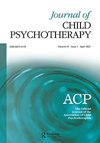对贝蒂·约瑟夫论文的回应:“考虑一个游戏室”
IF 0.8
Q4 PSYCHOLOGY, CLINICAL
引用次数: 0
摘要
在这篇经典的论文中,Betty Joseph谈到了我们工作中的环境——我们如何把握它的身体和人类方面。论文概述了治疗师头脑中自由的重要性——思考自己和我们看到的孩子身上发生的事情的自由。我将先谈几句我的职业背景,然后再谈我对这篇论文的个人经历。我在爱尔兰共和国做了将近四年的儿童和青少年心理治疗师。这是世界的一部分,与我在保加利亚长大的世界非常不同,也与我在塔维斯托克训练的伦敦不同。在一个新的国家,在一个儿童和青少年心理治疗不像英国那样为人所知和认可的社区,我很难找到自己的路。我错过了我建立的专业和个人网络。然而,随着时间的推移,我开始看到,系统中现有的差距(特别是在与年幼儿童的工作方面)、公共卫生服务的超负荷,以及缺乏足够的私人专业人员来处理复杂的病例,所有这些都意味着我作为一名儿童和青少年心理治疗师所能提供的东西受到了重视和需求。我主要在科克的“自然诊所”工作(图1)。我每周有一天在Clonakilty(西科克)的一家名为“Clonakility自然疗法”的小诊所里(图2)。这两家诊所都致力于为人类健康提供一种全面、非侵入性的方法,为各种非医学治疗师(包括心理治疗师和心理学家、物理治疗师、针灸治疗师等)提供执业空间。在这种文化背景下,心理治疗本身并没有很长的传统或既定的地位。它在社区中被公认为自然疗法大家庭的“成员”。在这两家诊所里,我是目前唯一一个为年幼儿童看病的医生。我非常感谢同事们对我工作的宽容和支持。在城市环境中工作(科克市)和在乡村小镇工作(Clonakilty)之间的差异一直让我感兴趣和挑战。在城市中,不同社会和文化背景的患者群体多种多样,对心理治疗的兴趣也越来越大。在乡村环境中,我有一个独特的机会听到我以前从未接触过的病人和家人的故事。然而,小镇环境中也有一种更强烈的脆弱感,这与“被看到”的耻辱感有关。本文章由计算机程序翻译,如有差异,请以英文原文为准。
Response to the paper by Betty Joseph: ‘Thinking about a playroom’
In this classic paper, Betty Joseph talks about the setting in our work – how we hold the physical, as well as the human, aspects of it. The paper outlines the importance of freedom in the therapist’s mind – the freedom to think about what is going on in ourselves, as well as in the children we see. I will start with a few words about my professional context, before moving on to my personal experience of the paper. I have been in private practice as a child and adolescent psychotherapist in the Republic of Ireland for almost four years. This is a part of the world that is very different to the world I grew up in, in Bulgaria, and also different from London where I trained at the Tavistock. I struggled with finding my way in a new country, in a community where child and adolescent psychotherapy is not known and recognised in the same way as it is in UK. I missed the professional and personal networks I had established. However, over time, I began to see that the existing gaps in the system (in particular, regarding work with younger children), the overload of the public health services, and the lack of enough private professionals prepared to see complex cases, all meant that what I had to offer as a child and adolescent psychotherapist was valued and in demand. I work primarily in ‘The Natural Clinic’ in Cork (Figure 1). I also have a space one day per week in a small clinic in Clonakilty (West Cork) called ‘Clonakilty Natural Therapies’ (Figure 2). Both clinics strive to provide a holistic and non-intrusive approach to human health, offering a space for a wide range of non-medical therapists to practice (including psychotherapists and psychologists, physiotherapists, acupuncture therapists, etc). In this cultural context, psychotherapy does not have a very long tradition or an established position in its own right. It is mostly recognised in the community as a ‘member’ of the natural therapies’ family. In both clinics I am the only practitioner for the moment who sees younger children. I am very grateful to have my colleagues’ tolerance and support of my work. The difference between working in a city context (Cork City) and a small town in the countryside (Clonakilty) continues to interest and challenge me. In the city there is diversity of patient groups in terms of different social and cultural backgrounds, and an ever dynamic and increasing interest in psychotherapy. In the countryside setting I have the unique chance to hear the stories of patients and families I would have never come close to before. However, there is also a much stronger sense of fragility in the small town setting related to a stigma about ‘being seen’.
求助全文
通过发布文献求助,成功后即可免费获取论文全文。
去求助
来源期刊

JOURNAL OF CHILD PSYCHOTHERAPY
PSYCHOLOGY, CLINICAL-
CiteScore
0.70
自引率
50.00%
发文量
46
期刊介绍:
The Journal of Child Psychotherapy is the official journal of the Association of Child Psychotherapists, first published in 1963. It is an essential publication for all those with an interest in the theory and practice of psychoanalytic psychotherapy and work with infants, children, adolescents and their parents where there are emotional and psychological problems. The journal also deals with the applications of such theory and practice in other settings or fields The Journal is concerned with a wide spectrum of emotional and behavioural disorders. These range from the more severe conditions of autism, anorexia, depression and the traumas of emotional, physical and sexual abuse to problems such as bed wetting and soiling, eating difficulties and sleep disturbance.
 求助内容:
求助内容: 应助结果提醒方式:
应助结果提醒方式:


